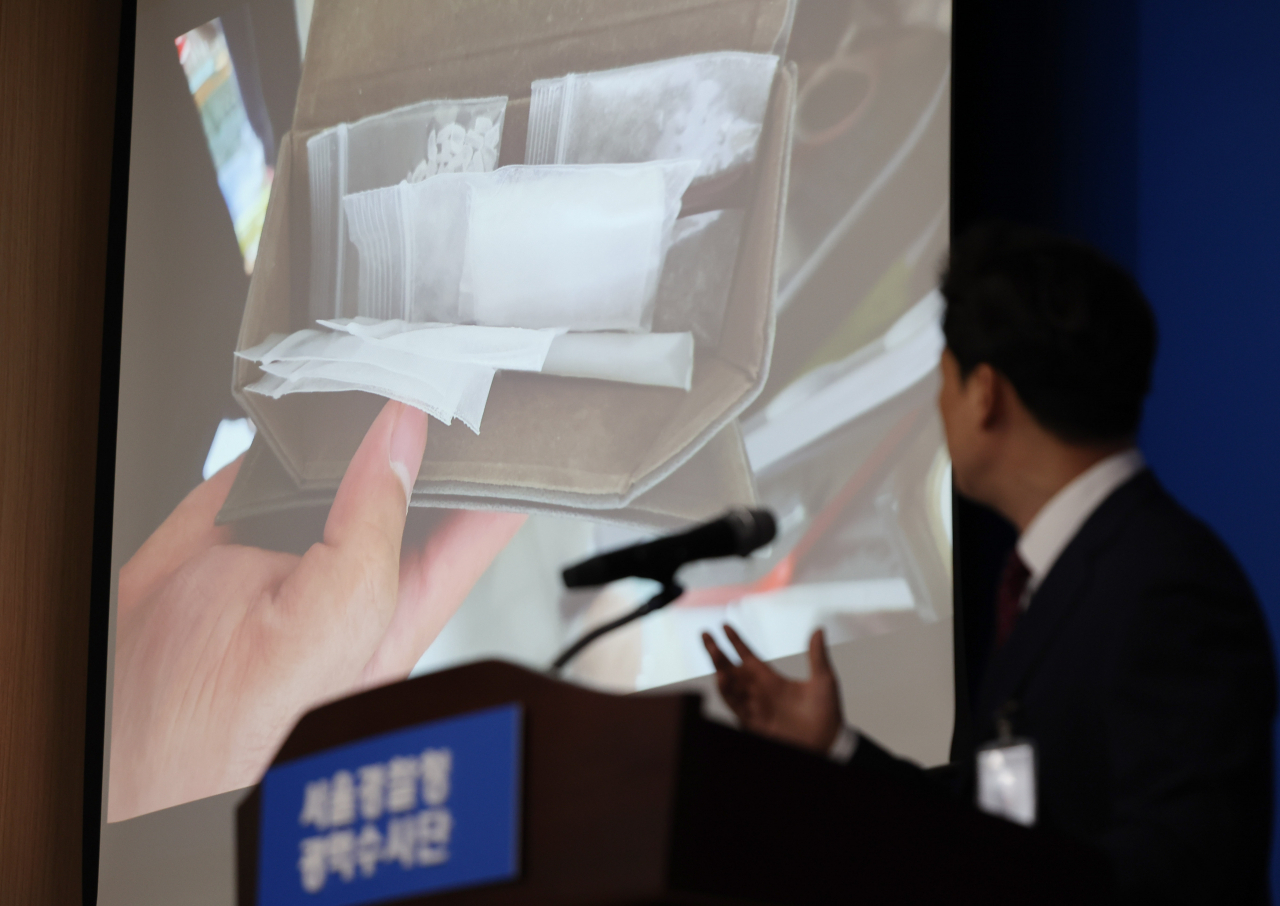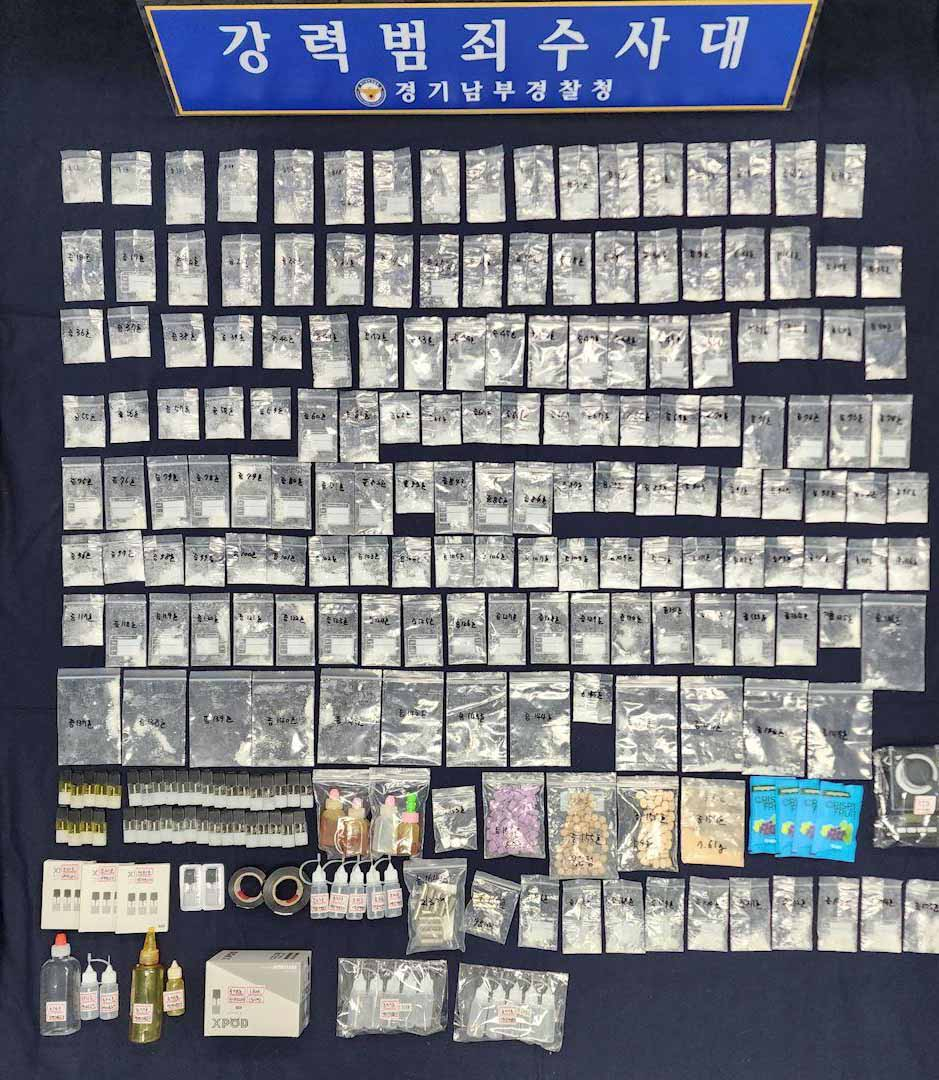South Korean police on Saturday arrested 10 people for suspected illegal drug use after raiding a foreigners-only club in Siheung, Gyeonggi Province.
According to officials, five police stations across the provincial cities of Siheung, Osan, Hwaseong and Ansan conducted a joint crackdown of a local club located in Jeongwang-dong, Siheung, arresting two Koreans and eight Vietnamese. One of the Koreans was a man in his 40s who owns the club -- operated exclusively for Vietnamese -- while three of the Vietnamese were club workers.
The police raided the venue after receiving a tip-off that "100 people were doing drugs at a Vietnamese club." Officials ran drug tests on the 70 people who were at the club and arrested 10 people who tested positive.
They confiscated nine ecstasy pills found at the scene and arrested three Vietnamese club workers on charges of aiding and abetting. Five Vietnamese customers tested negative for drug use but were found to be illegal immigrants and were booked under related charges.
The illegal immigrants have been handed over to the immigration office, and the police plan to request a warrant for drug use as soon as possible. As of now, the suspects are being detained under the clause of an "emergency arrest" that states it is possible to arrest and detain suspects without a warrant if investigating authorities believe there is sufficient evidence to justify such actions. But an official warrant must be issued within 48 hours of detaining the suspect.
 |
An official of the Seoul Metropolitan Police speaks during a briefing following a drug operation held April 26 in Seoul. (Yonhap) |
Ecstasy falls under the category of narcotic drugs, defined by Article 2 of the Enforcement Decree of the Narcotics Control Act, and its use can be punished by up to 10 years in prison or a fine of up to 100 million won ($75,358) under Article 60 of the same law. Police said the Korean owner also faces an additional charge for providing a venue for the use of illegal drugs.
South Korea, which once claimed to be a "drug free country," has been suffering from a recent rise in drug-related crimes. Last month, the Seoul Metropolitan Police said it caught 131 individuals involved in selling drugs to minors or for drug use.
In the same month, Gyeonggi Nambu Police Station busted a drug-smuggling ring on suspicion of sneaking in methamphetamine to the country. A Gwangju court said Sunday it sentenced a 27-year-old Vietnamese national to five years in prison for smuggling nearly 3,000 pills of ecstasy from Germany last year.
 |
This photo provided by the Gyeonggi Nambu Police Station on April 19 shows the illegal drugs confiscated from related arrests. (Gyeonggi Nambu Police Station) |
According to the National Police Agency, 12,387 people were arrested in 2022 for crimes related to drugs, marking a 52.8 percent increase from 8,107 in 2018. There was a steep increase in teen drug crimes in particular, with the figure nearly tripling from 104 to 294 in the same period.
Roughly a quarter of the drug deals that had been intercepted by the authorities in 2022 took place on the internet -- doubling from 1,516 in 2018 to 3,092 in 2022.
With drug-related news rattling the nation, the country's lawmakers recently proposed a series of bills related to the investigation and punishment of drug-related crimes.
Rep. Min Hyung-bae of the main opposition Democratic Party of Korea proposed a bill on Friday that would specify punishment against those who use dishonest means to make other people use drugs -- such as spiking one's drinks. The proposal -- if passed -- would allow punishment of over three years in prison for those convicted.
Earlier last week, Democratic Party Rep. Lee Jang-seop proposed a revised bill that would enable undercover investigations into drug-related crimes. An undercover probe is currently only allowed for digital sex crimes against children and adolescents.







